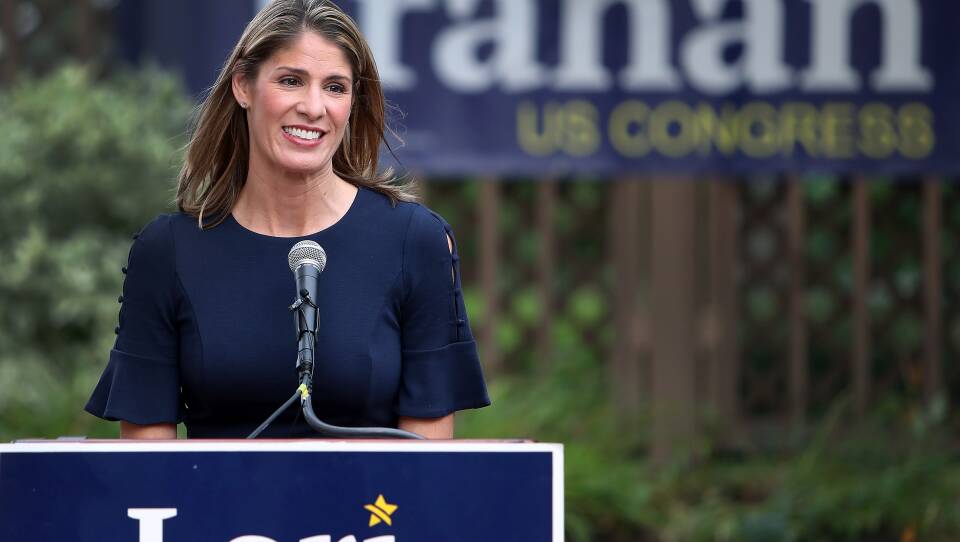The 2018 midterm elections added a few new faces to the Massachusetts congressional delegation. One of them was Lori Trahan, who will succeed five-term Congresswoman Niki Tsongas to represent the state's 3rd Congressional District. Trahan handily defeated her Republican opponent Rick Greene, and she spoke with WGBH's Morning Edition Host Joe Mathieu about her path to victory, her predecessor's legacy, and her plans as she heads to Washington. The transcript below has been edited for clarity.
Joe Mathieu: You came out on top in a very crowded primary, and now you're headed to Washington. Are you still pinching yourself from last night?
Lori Trahan: I am. It was a remarkable year, and we're so happy that we came out on top last night.
Mathieu: You've got some big shoes to fill. How are you planning to continue the legacy that Niki Tsongas has carried for so long?
Trahan: Oh you bet. I hear it all the time as I travel around the district. I realize how beloved she is. And frankly, last night, when I had the opportunity to sit with her, I said, 'You must be particularly proud of tonight's results, both across the country and here in Massachusetts.' Because we forget that she took this leap 11 years ago, when there weren't 237 women running alongside her nationwide. She became the first woman to represent Massachusetts in 25 years in Washington. And I used that opportunity to thank her, because I think her legacy goes far beyond the lines of this district. She's helped a lot of women reach this point.
Mathieu: When you look back at the primary, how do you square all of this? How do you rationalize it in your head? It was one of the most crowded fields, and somehow you emerged victorious.
Trahan: Yeah, I think the the primary race was hard fought. There were so many great candidates in that race, and we truly made each other better with each forum, and with each debate, the bar just got higher and higher. You know, I've lived in this district my whole life. I grew up in the city of Lowell, and I've lived here, I've raised my family here.
And I think, you know, if you look across the country, the people who are getting elected to Congress are people who are representative. They will be effective representatives of their districts and the people that they're there to represent. And I believe, as I crisscrossed the district, that's what I felt, that my working-class roots related to the sentiment that people wanted, you know, more working and middle class values down in Washington. They wanted someone who understood their community's needs, and really, you know, even had the experience working on some of those issues, like economic development and how to bring public funding to a place to help leverage private investment. So, you know, it was a hard fought primary, but it was it was a great one.
Mathieu: We're talking with Congresswoman-elect Lori Trahan, following her victory in the midterm elections last night. I mentioned a couple of new faces in the Massachusetts congressional delegation. You will be going to Washington with Ayanna Pressley, of course, who is the state's first African-American woman to serve in Congress.
Trahan: And such a force. I've gotten the opportunity to really get to know her over the last eight weeks, and I can't wait to serve with her, because I think that we can do such powerful things together, both for the state of Massachusetts, for women, and I'm looking forward to getting to work.
Mathieu: Can I ask you, as someone living in the Merrimack Valley, if Washington should play a role in the recovery following the natural gas fires and explosions?
Trahan: Absolutely. Look, we're doing everything we can to accelerate the timeline so that people can get in their homes and get their gas turned back on. But simultaneous to that effort, there needs to be an investigation so that we understand exactly what happened. That we bring out all the learning to ensure that this never happens again. And certainly to hold Columbia Gas accountable. I mean, there are small businesses that have closed, there are people who are paying out a lot of money so that they can stay in their home. ... But I think that will that will play out this month, and we will learn more about what caused this disaster. And we'll also be in a better position to hold the company accountable.





